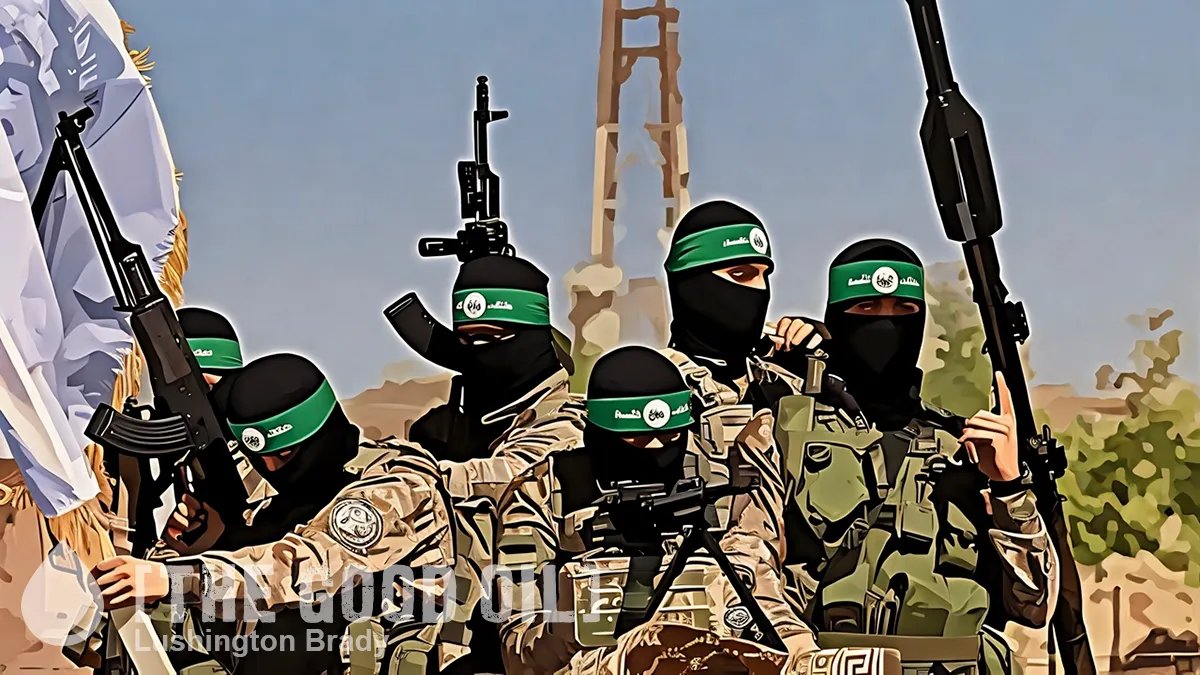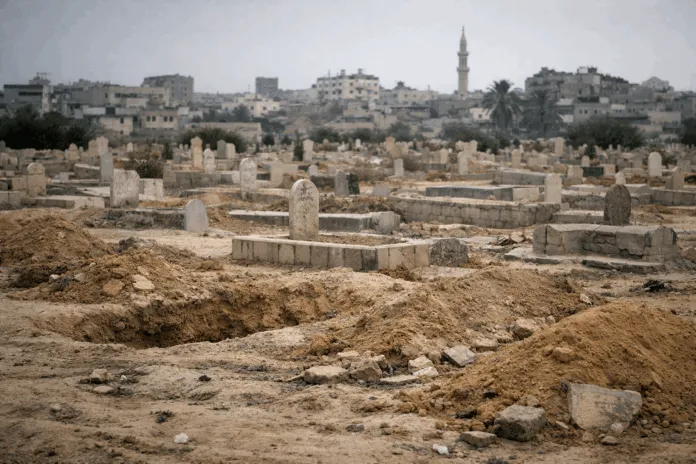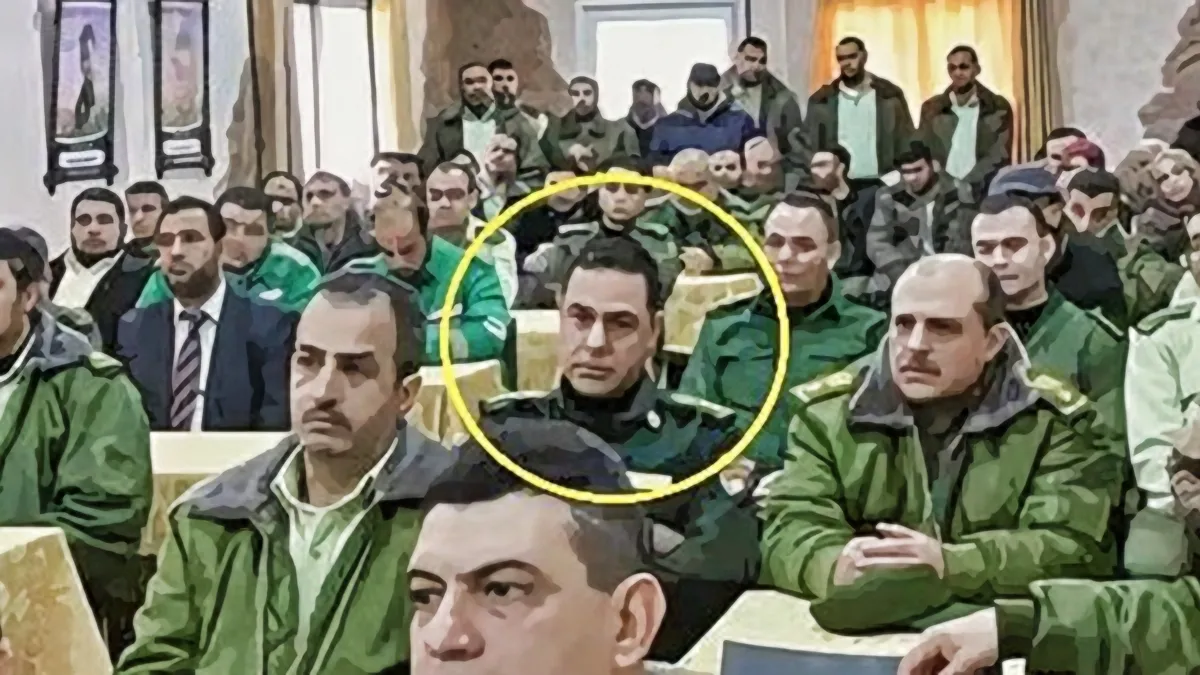Table of Contents
BICOM
BICOM provides accurate, timely and balanced information that is read by officials, experts, journalists and many others.
Hostage deal: A Hamas delegation is set to meet with Egyptian intelligence head Abbas Kamel in Cairo today [January 31st], to discuss the contours of a potential hostage deal.
- The delegation is set to include Hamas’s overseas leader Ismail Haniyeh, with talks likely to feature Hamas’s response to the deal contours reach by Israeli, American, Qatari and Egyptian officials in Paris this week, which would see all remaining hostages released in a three-stage process, in exchange for a truce and the release of Palestinian prisoners in Israeli jails.
- Prime Minister Netanyahu responded to speculation over talks yesterday by saying: “I’ve heard statements about all kinds of deals. So I wish to clarify: we will not end this war with anything less than the achievement of all its objectives… We will not withdraw the IDF from the Gaza Strip and we won’t release thousands of terrorists. None of that is going to happen. What is going to happen? Total victory.”
- Gaza: The IDF has announced that three Israeli soldiers were killed in action in the Gaza Strip yesterday. 30-year-old Netzer Simhi was killed by a rocket-propelled grenade in the northern Strip, and 28-year-old Capt. (res.) Gavriel Shani and 43-year-old Warrant Officer (res.) Yuval Nir in exchanges of fire with terrorists in the southern Strip.
- Three other soldiers sustained serious injuries in fighting in central and northern Gaza.
- Israel has also announced that First Sgt. Ran Gvili, a 24-year-old who served with the Israel Police, was killed in action in the battle for Alumim on October 7 and that his body is being held by Hamas in Gaza.
- The IDF has also confirmed weeks-long speculation that it is engaged in flooding parts of Gaza’s vast network of tunnels.
- Heavy fighting continued yesterday in both the north and south of the Strip. A large number of terrorists were killed or captured, and the IDF announced that the rocket launchers in Khan Yunis from which 11 rockets were fired at the greater Tel Aviv area the day before yesterday were destroyed.
- Amid fallout from last week’s revelations that UNWRA staff members participated in October 7th, an Israeli official has suggested that Israel does not support the immediate suspension of UNWRA activity in the Gaza Strip.
- “If UNRWA ceases operating on the ground, this could cause a humanitarian catastrophe that would force Israel to halt its fighting against Hamas,” a senior Israeli told The Times of Israel. “This would not be in Israel’s interest and it would not be in the interest of Israel’s allies either.”
The West Bank: Israeli forces conducted a raid in the northern West Bank city of Jenin yesterday morning, killing three suspected members of a Hamas cell in the city’s hospital.
- Commandos went in undercover in disguise, with the IDF, Shin Bet, and Police saying in a joint statement that the cell headed by Muhammad Jalamneh, 27, had been plotting “a raid attack inspired by the events of October 7.”
- Jalamneh was killed along with two other cell members, brothers Muhammad and Basel Ghazawi.
- IDF Chief of Staff Lt. Gen. Herzi Halevi said, “we do not want to turn hospitals into combat zones, but we are even more determined not to allow hospitals in Gaza, Judea and Samaria, Lebanon, above ground and in shafts leading to tunnels below ground, to become a place that is a haven for terrorists.”
The north: Three rockets were fired out of Syrian territory last night into the southern Golan Heights. The IDF retaliated with artillery fire, reported by Syrian opposition sources as being aimed at the Daraa area, near the Jordanian border.
- Two anti-tank missiles were also fired at Metulla from Lebanon last night, while earlier yesterday, a rocket landed in an open field near Arab al-Aramsha in the western Galilee. No injuries or damage were reported in either incident.
- A rocket fired from Lebanon at the Yiftah area in the Upper Galilee was also reported this morning, with no injuries or damage reported. The IDF responded with artillery fire.
UK hints at recognition of Palestinian state: UK Foreign Secretary Lord Cameron has said that recognition is a possible step London might take in a bid to make the process towards statehood “irreversible”.
- Speaking to the Conservative Middle East Council, Cameron echoed the US position in noting that a reformed Palestinian Authority was required to give the Palestinian people “technocratic and good leaders” able to govern Gaza.
- “Together with that, almost most important of all,” he said, “is to give the Palestinian people a political horizon so that they can see that there is going to be irreversible progress to a two-state solution and crucially the establishment of a Palestinian state.”
- “We have a responsibility there because we should be starting to set out what a Palestinian state would look like, what it would comprise, how it would work and crucially, looking at the issue, that as that happens, we with allies will look at the issue of recognising a Palestinian state, including at the United Nations. That could be one of the things that helps to make this process irreversible.”
Context: Haniyeh has not visited Egypt in over a month, with his presence interpreted as a signal of the seriousness of the negotiations.
- Yesterday, he announced that Hamas was not rejecting the Paris proposals outright. The Washington Post has reported that the deal to be discussed would see three Palestinian prisoners, some in jail for violent attacks, released for each hostage.
- Far-right elements within the Israeli coalition continue to oppose a hostage deal, especially Finance Minister Smotrich and National Security Minister Ben Gvir. Ben Gvir has made public threats to bring down the government rather than allow a deal.
- Opposing this position are War Cabinet members Gantz and Eisenkot, who joined the government in the wake of October 7th. Opposition head Lapid pledged yesterday to provide Netanyahu with a “safety net for any deal that returns the hostages to their homes.”
- In confirming the use of tunnel-flooding, the IDF clarified that the tactic was not suitable for all tunnel sections, and that it conducted “professional and comprehensive” assessments in advance, to ensure that groundwater is not contaminated.
- The US and over a dozen other countries, including the UK, Germany, Italy, France, Australia, Japan, and Canada announced suspension of funding for UNWRA in light of the revelations supplied by Israel over its staffers’ involvement in October 7th.
- Israel has further claimed that 10 per cent of UNWRA’s 12,000-strong Gazan staff have ties to either Hamas or Palestinian Islamic Jihad.
- A delegation headed by Coordinator of Government Activities in the Territories (COGAT) Maj. Gen. Ghassan Aliyan is in Washington for talks with US officials, with UNWRA featuring heavily. COGAT officials are thought to have told their hosts that alternative organisations needed to be found to act in the Strip instead of UNRWA.
- Jalamana was seriously wounded a few months ago when a car bomb he was assembling exploded, prompting the Shin Bet to launch a manhunt for him. While injured, he was taken to a safe house, where he began to convalesce. Jalamana and his partners exploited the Israeli security forces’ sensitivity when dealing with humanitarian issues, and used ambulances to shuttle across the West Bank.
- The UK has traditionally avoided pre-emptive recognition of Palestinian statehood, recognising that such a move surrenders valuable political capital required in encouraging Palestinians to end their intransigence in future negotiations.
- Statehood has traditionally been understood as the end result of a negotiated agreement, not as a step towards one. Further, there have been fears that such moves risk provoking dangerous and potentially violent disappointment when they fail to shift on-the-ground realities.
Looking ahead: Further speculation is rife in Israel of a purported “secret” plan for a post-Hamas Gaza, involving a demilitarised Palestinian state and Israeli normalisation with Saudi Arabia. (For more details, see Israeli Media Summary below.)
- In a bid to prevent Hamas from seizing aid intended for the Gazan people, the IDF is considering a plan which would see it, along with international aid organisations, distribute aid directly.
Unpacking South Africa vs Israel at the ICJ
The 17 justices of the International Court of Justice at The Hague handed down their ruling on South Africa’s request for the court to issue a temporary injunction on its allegation that Israel is committing genocide in the Gaza Strip.
Download BICOM’s briefing on this here
PODCAST
Episode 225 | Who are the Houthis?
In this episode, Richard Pater speaks to Inbal Nissim-Louvton, an expert on Yemen. They discuss the Houthis’ foundation and their emergence as a social and political power. Inbal presents their ideological roots and gives her assessment on the current political environment in Yemen. She also relates to the Houthis’ regional role and their connections to Iran and the Palestinians. Inbal Nissim-Louvton teaches at the Department of History, Philosophy and Judaic Studies at the Open University in Israel and is a Research Associate at the Forum for Regional Thinking.
Listen on Apple Podcasts, Spotify and Google Podcasts
ARTICLE
Peacebuilding Special Issue | A Multilateral and Bottom-Up Approach to End the Israeli-Palestinian Tragedy
Top stories from the UK and Israeli media
The BBC, Sky News, The Telegraph, Reuters, The Times and The Sun report that Israeli forces have killed three members of Palestinian armed groups in a hospital in the West Bank. CCTV footage showed members of an undercover unit disguised as medics and other civilians making their way through a corridor with rifles raised. The IDF said the men were hiding in the Jenin hospital, and that one was about to carry out an attack.
The Guardian reports that Benjamin Netanyahu has said he will not accept any ceasefire deal that requires the release of thousands of Palestinian prisoners or the departure of Israeli troops from Gaza, as the Hamas leader, Ismail Haniyeh, said he was willing to travel to Cairo to discuss the proposals.
The Guardian and The Independent report that the music rights company BMG is parting ways with the Pink Floyd co-founder Roger Waters over comments he made about Israel, Ukraine and the United States, Variety reported on Monday.
Sky News reports that it has seen Israeli intelligence documents that Israel claims are evidence that staff working for a UN agency were connected with Hamas in Gaza. The report, which has been shared with foreign governments, alleges that six employees of the UN Relief and Works Agency for Palestine Refugees (UNRWA) infiltrated Israel. Four of them were allegedly involved in kidnapping Israelis, while another worker is said to have provided “logistics support”.
The Financial Times publishes a piece on whether Israel is on track to complete its war aims: “Since the start of the war in Gaza, Israel’s armed forces have pursued their twin objectives — ‘dismantling’ Hamas rule in the territory and rescuing all remaining Israeli hostages seized by the group — with ferocity and determination. Three months on, however, many in Israel, including Gadi Eisenkot, a member of the war cabinet, have begun to question whether either or both of those aims can be achieved. Michael Milshtein, a former Israeli intelligence officer and expert on Palestinian affairs, said Israel faced a dilemma. ‘We’ve reached a T-junction: either you reach a full deal [with Hamas for the hostages] and withdraw, or you go for the full toppling of the Hamas regime and the conquest of all of Gaza,’ he said. ‘You need to choose.’”
The Financial Times also reports that Hamas said it was “studying” a proposal for a temporary truce in its war with Israel that would be used to free hostages held in Gaza, in return for the release of Palestinian prisoners and the delivery of more aid into the besieged strip. The initiative, which calls for a six-week pause in the conflict, comes after officials from Qatar, Egypt and the US met Israeli intelligence chiefs in Paris in an effort to break a deadlock that has stymied mediation efforts.
The Guardian further reports that ministers and parliamentarians in Netanyahu’s coalition government including Smotrich and Ben Gvir have attended a conference calling for Israeli resettlement of the Gaza Strip and “voluntary migration” of the Palestinian population elsewhere.
The BBC has published an explainer on what South Africa’s case against Israel at the ICJ is.
Roger Boyes writes for The Times, saying that “a fresh wave of Muslim militancy is looming” across the Gulf states.
The Times reports that Foreign Secretary David Cameron is considering recognising a Palestinian state, saying there are “hopeful signs” of a breakthrough in Paris where negotiations are ongoing.
The Sun reports that the chief of Iran-backed militia tonight announced a halt to the militia’s attacks on US assets in both Syria and Iraq. The decision follows the killing of three US troops in a drone ambush near the Jordan-Syria border – an attack that the Pentagon said bore the “footprints” of the Iraq-based terror group. Kata’ib Hezbollah Brigades Secretary-General al-Hamidawi announced the immediate “suspension” of military operations against the US.
The Sun also reports that Israel has confirmed it is flooding Hamas’s matrix of tunnels beneath the Gaza Strip with sea water to flush out the terrorists. Dubbed the “Gaza Metro”, the IDF has switched its tactics to start using large pumps to help destroy Hamas’s remaining underground strongholds.
Avi Issacharoff writes in Yediot Ahronot about a proposed prisoner/hostage exchange deal. Another factor that has played a role in Hamas’s less decisive stance on a possible deal is the Israeli military pressure. Contrary to several unequivocal statements about how that pressure “isn’t working,” it actually does appear to be getting the job done and has successfully prompted at least Sinwar and crew to chart their course moving forward cautiously. On Sinwar, Issacharoff writes, “he knows that despite the fact that he is currently well-hidden deep inside one of his tunnels, the day will arrive when a Palestinian informant gives up his location in real time, at which point he could very well find himself joining the long list of shahids [martyrs]. That may not be at all what Sinwar wants. He may have secured himself a place in Palestinian history, but at this point it looks like he would prefer to survive the war and to become the Palestinian people’s leader.” He adds that he is “reminded of Ibrahim Hamad, the former commander of Hamas’s military wing in the West Bank who was at the top of Israel’s most-wanted list for six years. At the moment of truth, when IDF troops surrounded the house he had been hiding in, Hamad emerged with his hands raised, dressed only in his underpants. Hamad and others are waiting for a deal that will arrange their release from Israeli prison. Sinwar certainly remembers the promise he made on the day he was released from prison to secure Hamad’s release as well. Now is his moment of truth, and he knows that this is a chance that he will probably never get again.”
Also in Yediot Ahronot, Nadav Eyal writes that the “issue of the price [of a hostage deal] is very difficult and complex. When Netanyahu said at the Bnei David pre-military academy in Eli that the IDF would not withdraw from the Gaza Strip and would not release thousands of terrorists, he was talking… about the first stage. The ‘humanitarian’ stage in which 40 Israelis are to be released. But there are going to be another two stages to the hostage deal. In the end, we absolutely might (and probably will have to, given the price that Netanyahu personally set with the Shalit deal, in which more than 1,000 terrorists were released in exchange for a single soldier), reach thousands.
The bigger questions are strategic in nature and are more meaningful than the number and identity of the prisoners. For example, will Israel withdraw at a certain stage from the Netzarim corridor and, by so doing, effectively allow for Palestinian civilians to return to the northern Gaza Strip? That won’t happen in the first stage, as far as Israel is concerned. But what about in the second and third stages? And here’s another question: Will Sinwar and his cohorts receive immunity from assassination, and what will be the nature of that immunity? Will we, for instance, see Sinwar hold a ‘victory’ rally in Rafah? A two-month pause isn’t the brief pause we had in the previous deal.”
Ben Caspit in Maariv discusses the politics of a potential agreement between Israel and Saudi Arabia that would also require a deal with the Palestinians. “Is Netanyahu capable of veering strongly to the left and of opting to enter into an historic process that will end the war in Gaza and lead to the future establishment of a Palestinian state, coupled with an historic peace agreement with Saudi Arabia? Probably not. Netanyahu has kicked over many other similar buckets before they were filled. Having said all that, it is important to bear in mind that Netanyahu knows that his days are numbered. Currently, his legacy is the October 7 massacre, a horrific calamity of a kind never experienced by Israel.” Caspit concludes that “opting for an agreement with Saudi Arabia and progress on the Palestinian front might help him alter somewhat the impression he leaves on history, in the twilight of his tenure.”In Haaretz, Amos Harel argues that Netanyahu’s current coalition will not survive a hostage deal. “The optimism broadcast on Sunday at the end of the talk reflected what had taken place between the Israeli negotiators and the American and Arab mediators. That is something akin to a marriage agreement between the groom and the rabbi before the bride has been consulted on her opinion. Moreover, the moment that the particulars of the proposal began to surface in the Israeli media on Monday, half-denials began to appear from the direction of Prime Minister Benjamin Netanyahu’s office.” Harel adds that “the Israeli prime minister is nearing a critical decision point: to accept the deal with heavy concessions and face criticism from many Israelis, or reject it as demanded by far-right ministers Ben-Gvir and Smotrich, risking the departure of centrist ministers. Meanwhile, he’s resorting to vague semi-denials…in practice, the prime minister is rapidly approaching the point of no return, where he will have to decide between the two opposing forces in his government. Ben-Gvir is not alone. He will have no shortage of partners on the right, including Likud ministers. In other words, one way or the other – if a deal moves forward – the coalition has slim prospects of surviving in its current form. No matter what Netanyahu decides, either the right or the left will abandon him.”
Against the background of criticism within Israel that aid trucks are being taken over by Hamas, Israel Hayom reports that the political echelon is preparing a plan for the IDF to help distribute aid to Gaza residents. According to the initial suggestions, a designated humanitarian complex will be established, initially in northern and central Gaza for Gazan civilians. The IDF also formally announced it has flooded tunnels in the Gaza Strip in an effort to destroy them. Several IDF units and the Defence Ministry have jointly developed tools to facilitate the flow of large quantities of water into the tunnels as one out of several tools the IDF is using to neutralize the tunnels. The flooding effort has been made possible by pipes and pumps. To ensure the use of groundwater is not damaged, soil samples and water conveyance systems in the area were studied prior to the flooding operations. The IDF said, “This tool is an important technological and engineering breakthrough in dealing with underground challenges. It was developed jointly by several groups within the security establishment.”
Haaretz reports that the Knesset House Committee supported a motion to expel Hadash-Ta’al party lawmaker Ofer Cassif on Tuesday. The committee voted 14-2 to advance his impeachment to the Knesset plenum based on a (previously unused) mechanism in the 2016 Suspension Law, which allows MKs to expel a colleague if they are found to have expressed support “for an armed struggle” against Israel or incited to racism. The effort to remove Cassif from the parliament came in response to his public support for South Africa’s case against Israel at the International Court of Justice. A supermajority vote of 90 MKs is needed to suspend Cassif.
Channel 12 reports that Defence Minister Gallant proposed new elections be held in either two years or six months after the war ends, whichever comes first. The proposal was reportedly aimed to reduce tensions between Netanyahu and Benny Gantz, who joined the government after October 7, in that it would allay Netanyahu’s concerns for his government, and address Gantz’s suspicions that Netanyahu is playing politics to avoid fresh elections amid mounting calls for new leadership.
Channel 12 also reports polling results. When asked: Who is better suited to be prime minister between Netanyahu and Gantz, 41 per cent say Gantz over 23 per cent for Netanyahu. When asked who is better suited to be prime minister between Netanyahu and Lapid, 29 per cent say Netanyahu over 27 per cent for Lapid; when asked who is better suited to be prime minister between Netanyahu and Gadi Eisenkot, 36 per cent say Eisenkot over 24 per cent for Netanyahu.
Recommended Reading
The War in Gaza Postponed the Emerging US–Israel Crisis, but Intensified It, Chuck Freilich, INSS
“For the past several years—and even more so since the start of the “judicial overhaul”—we have been warning about an impending crisis in relations between the United States and Israel. The war postponed these tensions, which had grown in the months before October 7, but now, following a period of unprecedented strategic cooperation, the gaps are widening around Israel’s handling of the war and “the day after.” The Biden administration is increasingly sceptical that the Israel Defense Forces (IDF) can achieve its military goals and is working to scale back the fighting and move onto the diplomatic stage—the centrepiece of which is an effort to advance the establishment of a Palestinian state as the key to reshaping a new regional order. “ Read more
When Hamas says no to a deal, what does it mean? Avi Issacharoff, Ynet
“The internal dispute between the leadership of the terror organization in the Gaza Strip and abroad, the CIA’s move that pushed them into a corner, and the military pressure from the IDF all indicate that the response may change” Read more
Netanyahu’s Current Coalition Won’t Survive a Hostage Deal With Hamas, Amos Harel, Haaretz
“The Israeli prime minister is nearing a critical decision point: to accept the deal with heavy concessions and face criticism from many Israelis, or reject it as demanded by far-right ministers Ben-Gvir and Smotrich, risking the departure of centrist ministers. Meanwhile, he’s resorting to vague semi-denials” Read more









